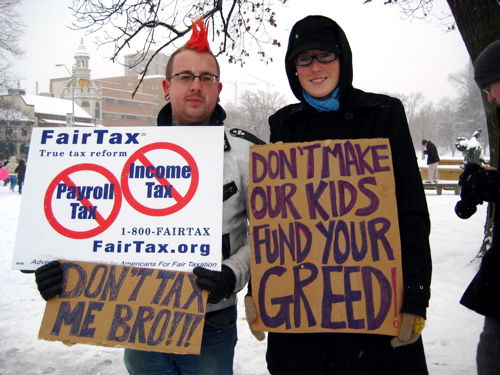I don’t know if you heard about this, but there there was kind of a conservative resurgence in the last election. Normally, Montana is resistant to such broad national trends—see also: real estate collapse, Trader Joe’s, prohibition against sweatpants in public—and in this case, the notion of the median political position moving to the right seemed almost statistically impossible. Those of us living in Missoula tend to forget, but Montana is one of the redder states in the union, as a quick trip down (and, abruptly, further down) any public roadway will indicate. Yet, like Frankenstein slowing down as he gets older, the Montana legislature has managed to become even more conservative. The other week, we talked about their plan to adopt the most restrictive voter registration requirements in the country. On Friday, they’ll vote on repealing the so-called Missoula Ordinance, which prohibits discrimination in housing and public accommodations on the basis of sexual orientation, and on adopting a law that would ban similar nondiscrimination ordinances across the state. Somewhere in that busy agenda of protecting freedom by outlawing various actions, they’ve also found time for House Bill 438, a law that would require couples to complete ten hours of marriage counseling before they can get divorced.
Category Archives: representative democracy
Friday links! Rule of the commentariat edition
 It’s been a bonanza week for news commentators, with earthquakes, tell-all books, people saying “negro” two years ago—everything that makes a vibrant political discourse thrive. The big news, though, was that a certain someone jumped from national electoral politics to the big show: cable news commentating. When Bill O’Reilly welcomed Sarah Palin to Fox News, he told her that she had acquired a powerful tool, a bigger megaphone that she could at last use to shout back at her critics. The implication was that being a Fox commentator was a position of greater power than being governor of Alaska. And was he wrong? Sarah Palin is more popular now than she was when she had the full might of the Republican Party behind her. Rush Limbaugh has outlasted the Contract With America, three Presidents and presumably dozens of minor coronaries. And Glenn Beck can’t think. Powerful men all, and it’s hard to argue that they wield less influence over the American people than do Pelosi, Boehner and Reid. Perhaps that is as it should be. I, for one, welcome our new and increasingly bloated masters, and urge them to form a new government of Real Americans and questionable analogies to Hitler just as soon as they can. Won’t you join me in considering the beautiful world they’re creating? No? Okay, back to cat videos, then. I’ll see the rest of you after the jump.
It’s been a bonanza week for news commentators, with earthquakes, tell-all books, people saying “negro” two years ago—everything that makes a vibrant political discourse thrive. The big news, though, was that a certain someone jumped from national electoral politics to the big show: cable news commentating. When Bill O’Reilly welcomed Sarah Palin to Fox News, he told her that she had acquired a powerful tool, a bigger megaphone that she could at last use to shout back at her critics. The implication was that being a Fox commentator was a position of greater power than being governor of Alaska. And was he wrong? Sarah Palin is more popular now than she was when she had the full might of the Republican Party behind her. Rush Limbaugh has outlasted the Contract With America, three Presidents and presumably dozens of minor coronaries. And Glenn Beck can’t think. Powerful men all, and it’s hard to argue that they wield less influence over the American people than do Pelosi, Boehner and Reid. Perhaps that is as it should be. I, for one, welcome our new and increasingly bloated masters, and urge them to form a new government of Real Americans and questionable analogies to Hitler just as soon as they can. Won’t you join me in considering the beautiful world they’re creating? No? Okay, back to cat videos, then. I’ll see the rest of you after the jump.
Stronger than reason: David Brooks on the Tea Party
He’s been wrong before, but when David Brooks says you’re a nationwide movement, you’re either Soccer Moms in the 2004 general election or a real thing. In Monday’s New York Times, Brooks alleges that the Tea Party movement is the latter. After opening with his usual overview of the prevailing sociopolitical winds for the last thirty to 100 years, he gets to the money shot. “Every single idea associated with the educated class has grown more unpopular over the past year,” he writes. For the moment, Brooks has declined to enumerate which instruments he uses to measure the popularity of ideas, but he at least sounds right. “The educated class believes in global warming, so public skepticism about global warming is on the rise,” he says. “The educated class supports abortion rights, so public opinion is shifting against them. The educated class supports gun control, so opposition to gun control is mounting.” Those committed to responsible argument will object to Brooks’s questionable use of the word so, which makes his theory the cause of his evidence, but as and statements his list still draws an unsettling connection. When Brooks points out that the Tea Partiers are defined by what they are against, and that most of what they are against can be grouped under “the concentrated power of the educated class,” he introduces a framework as useful as it is terrifying.
A little historical perspective and a resolution for 2010

Problem: You wonder what it would be like to touch a black person, but your maid is too skittish. Solution: Internship at the RNC!
The photo at right comes from a whole set of shots of RNC chairman Michael Steele fallin’ out with his interns, at least one of whom appears to be developmentally disabled. Props to everyone’s favorite Meghan Gallagher for the link. 2009 draws rapidly to a close, which means that Combat! blog’s New Year’s resolutions—stop drinking well whiskey, provide a more balanced assessment of both ends of the American political spectrum, and reduce violations of resolution #1 to three per week—will soon be in force. Until then, though, screw those Chicken Little sons of rich bitches. There are two legitimate political parties in the United States right now. One of them is powerful, disorganized, corrupt and cowardly. The other is the GOP, which lacks political power but makes up for it by being well-coordinated and brave. Maybe “brave” isn’t the right word so much as “audacious.” Whether they’re organizing protests against quote-unquote tyrannical taxation three months into the new presidency or blaming the current crisis in health care on people who exercise too much, Republicans proved in 2009 that they know how to play from behind. In the process, they also made this one of the most hysterical, counterproductive years of American political discourse in recent memory. Oops. Then again, a lot of things have slipped from recent memory. As Timothy Egan points out, the GOP’s frothing over health care reform in 2009 is not unlike it’s general flip-out over Bill Clinton’s tax reform in 1993. Check it!
Daily Show articulates Tea Party platform exactly
| The Daily Show With Jon Stewart | Mon – Thurs 11p / 10c | |||
| Highway to Health – Last Tea Party Protest of the Year | ||||
|
||||
The video above is from last night’s Daily Show, in which John Stewart assesses the final Tea Party protest of the year. First of all, I think it’s high time we acknowledged that the Daily Show pretty much performs all the functions of Combat! blog, plus a bunch of other stuff, and does all of it better. They are the Facebook to my Twitter. Second of all, after months and thousands upon thousands of words speculating on just what it is that the various Tea Party protestors have in common, John Steward has pinned down the species in one four-minute video segment. In so doing, he also assembles a pretty good list of differences between them and an actual political party. To wit:
1) They confuse goals with policy. At the 2:01 mark, Rick Scott says “we” don’t want more government or increased spending; we just want lower health care costs and more coverage. I agree that it’s a terrific idea, but I’m interested to see letter B in his outline. The chant “kill the bill” is a comical instance of how not just policy-free but anti-policy the Tea Party movement is. The Tea Partiers don’t have their own bill or even a vague plan for how to address health care reform, but dammit, they’re against everything that has been done so far. When they’re not out in force specifically to fight health care reform, the most common complaint of Tea Party activists is that taxes and spending are both too high. But what specific spending do the Tea Partiers suggest we cut? By now, we’ve all seen the video where the fat lady thinks for a few seconds before saying, “All of it.” Low taxes, a strong economy, unshakeable national security and an unobtrusive government aren’t positions; they’re values. That they’re values we all share makes passing them off as an agenda even more insipid.
2) They’re outraged at stuff that hasn’t happened yet. Since Barack Obama took office and the Tea Party movement miraculously coalesced out of nowhere/Fox News studios, no changes have been made to federal gun laws, tax structures or abortion statutes. Yet the Tea Party is animated by a sense of urgent panic over these issues. Granted, President Obama probably will raise the marginal tax rate and re-ban private ownership of assault weapons, but he hasn’t yet, just like he hasn’t converted the country to socialism or changed one whit of the landscape that Tea Partiers suddenly find so terrifying after the Bush administration. When Laura Ingraham says “First they came for the rich…” she’s either lying or describing her sophomore year in college.
3) They have no sense of historical perspective. And about Laura Ingraham’s little homily: it’s a good thing Eli Wiesel wasn’t at that anti-health care reform rally. For all their fixation on history, the Tea Party seems to have very little sense of how the lives of a bunch of mallwalkers in middle America might differ from those of colonists in eighteenth-century Boston, or Jews in 1930s Germany, or political dissidents in Maoist China. Now matter how much Congress jacks up the marginal tax rate, no one is going to be sent to a forced labor camp. The inability to distinguish between real tyranny and not getting your way is a hallmark of childhood, not of representative democracy in a post-industrial superpower.
4) They’re fundamentally anti-intellectual. “We cannot let the pen be mightier than the sword.” I’m sure that was taken out of context, but I would like to take this opportunity to personally offer to meet with this fat man and explain to him the benefits of a discourse based on rhetoric rather than capacity for extended physical violence. Does the Tea Party really believe that we as a nation should think less and act more? Probably, which is why they give me the fuckin’ creeps.


